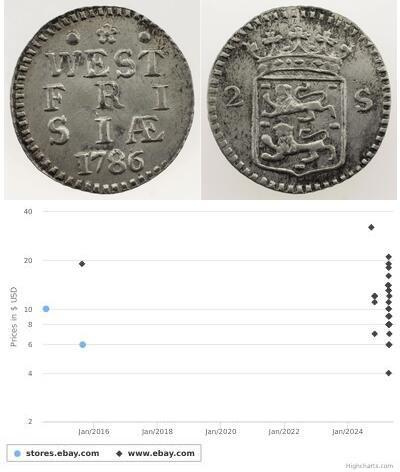[ 3354] Faustina I, Roman Empress Wife of Roman Emperor Antoninus Pius - Silver Denarius (19mm, 2.96 gm.) Rome 147 A.D. Reference: RIC III 361a. RSC 101a.BMCRE 417. DIVA FAV-STINA, draped bust right. AVGVSTA, Ceres standing left, raising right hand and holding long torch in left. In ancient Roman religion, Ceres was a goddess of agriculture, grain crops, fertility and motherly relationships. Her cult took many forms. She was the central deity in Rome's so-called plebeian or Aventine Triad, and was paired with her daughter Proserpina in what Romans described as "the Greek rites of Ceres". She played an essential role in Roman marriage and in funeral rites. Her seven-day April festival of Cerealia included the popular Ludi Ceriales (Ceres' games). She was honoured in the May lustration of fields at the Ambarvalia festival, and at harvest-time. Her functions and cults were held equivalent to those of the Greek goddess Demeter, whose mythology she came to share. Provided with certificate of authenticity. CERTIFIED AUTHENTIC by Sergey Nechayev, PhD - Numismatic Expert Annia Galeria Faustina, more familiarly referred to as Faustina the Elder (Latin: Faustina Major; born September 21 about 100, died October or November 140), was a Roman Empress and wife of Roman Emperor Antoninus Pius. Faustina was the only known daughter of consul and prefect Marcus Annius Verus and Rupilia Faustina. Her brothers were consul Marcus Annius Libo and praetor Marcus Annius Verus. Her maternal aunts perhaps were Roman Empress Vibia Sabina, Matidia Minor. Her paternal grandfather had the same name as her father and her maternal grandparents possibly were Salonina Matidia (niece of Roman Emperor Trajan) and suffect consul Lucius Scribonius Libo Rupilius Frugi Bonus. Faustina was born and raised in Rome. As a private citizen, she married Antoninus Pius between 110 and 115. Faustina and Antoninus had a very happy marriage. Faustina bore Antoninus four children, two sons and two daughters. They were: Marcus Aurelius Fulvius Antoninus (died before 138); his sepulchral inscription has been found at the Mausoleum of Hadrian in Rome. Marcus Galerius Aurelius Antoninus (died before 138); his sepulchral inscription has been found at the Mausoleum of Hadrian in Rome. His name appears on a Greek Imperial coin. Aurelia Fadilla (died in 135); she married Aelius Lamia Silvanus or Syllanus. She appears to have had no children with her husband and her sepulchral inscription has been found in Italy. Annia Galeria Faustina Minor or Faustina the Younger (between 125-130-175), a future Roman Empress; she married her maternal cousin, future Roman Emperor Marcus Aurelius. She was the only child who survived to adulthood. On July 10, 138, her uncle emperor Hadrian had died and her husband became the new emperor. Antoninus was Hadrian's adopted son and heir. Faustina became Roman Empress and the senate accorded her the title of Augusta. Faustina as an empress was well respected and this beautiful woman was renowned for her wisdom. The Augustan History impugned her character, criticizing her as having "excessive frankness" and "levity". However, this doesn’t appear to be the case with her character. Throughout her life, Faustina as a private citizen and an empress was involved in assisting with charities, assisting the poor and sponsoring and assisting in the education of Roman children, particularly of Roman girls. She can be viewed as one of the most moral, stable and respected empresses in the history of the Roman Empire. When Faustina died, Antoninus was in complete mourning for Faustina. Antoninus did the following in memory of his loving wife: Deified her as a goddess (her apotheosis was portrayed on an honorary column) Had a temple built in the Roman Forum in her name, with priestesses in the temple. Had various coins with her portrait struck in her honor. These coins were inscribed DIVA FAVSTINA ("Divine Faustina" ...
más ...
Similar Coin Groups

1 Stiver Provincias Unidas de los Países ...
grupo tiene 9 monedas / 9 precios
Add coin to this group

1 Denario Imperio romano (27BC-395) Plat ...
grupo tiene 2 monedas / 1 precios
Add coin to this group

1 Poltina Imperio ruso (1720-1917) Oro I ...
grupo tiene 9 monedas / 8 precios
Add coin to this group
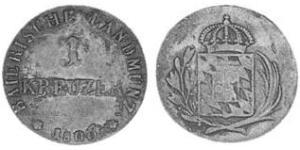
1 Kreuzer Reino de Baviera (1806 - 1918) ...
grupo tiene 2 monedas / 1 precios
Add coin to this group

8 Maravedi Kingdom of Spain (1814 - 1873 ...
grupo tiene 5 monedas / 3 precios
Add coin to this group
2025-06-14
- New coin is added to 1/2 Farthing Reino Unido de Gran Bretaña e Irlanda (1801-192 ...
1/2 Farthing Reino Unido de Gran Bretaña e Irlanda (1801-192 ...
grupo tiene 9 monedas / 8 precios
⇑
Great Britain - 1/2 Farthing 1844 - Victoria
2025-05-24
- Historical Coin Prices
Usted podría estar interesado en …

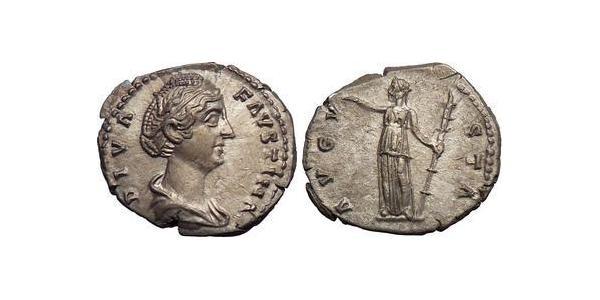




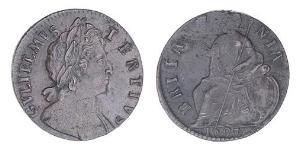
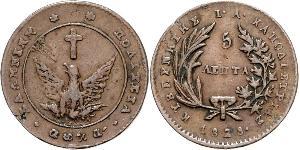


-300-150-YYnBwcI0woEAAAEnE4RaOLOG.jpg)

